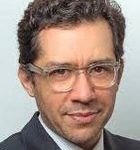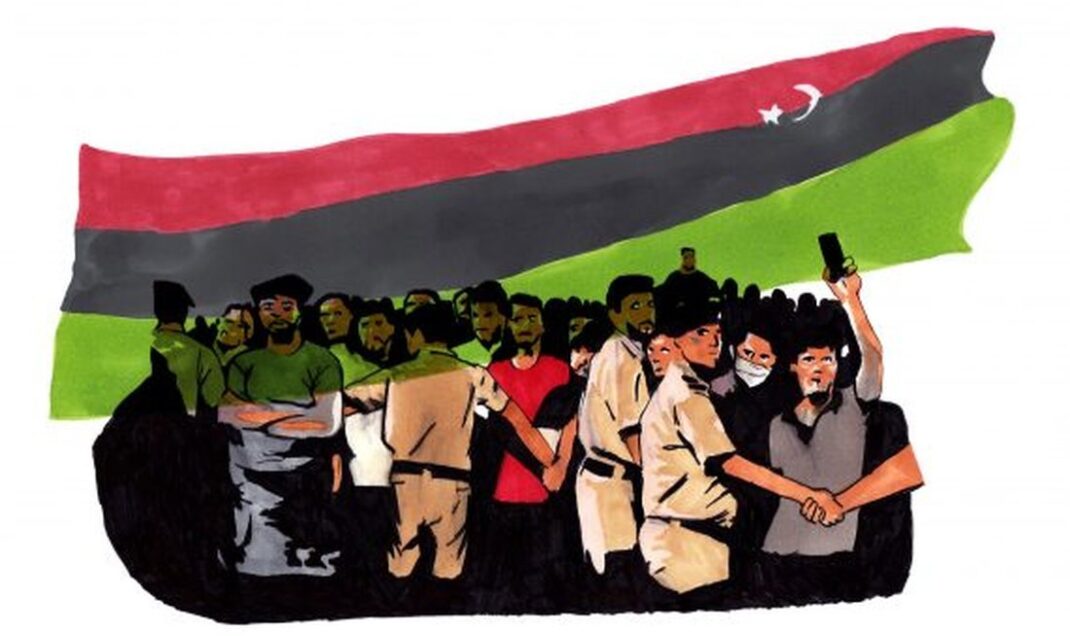Jalel Herchaoui

2. Why Elections Failed In Libya
Libyan history following the fall of Muammar Qadhafi has been full of twists and turns. We hope the brief review just furnished both attests to this fact, and clarifies many of the sequences and players most essential to this still-developing story.
With what remains of the report, we turn our attention to making sense of why plans for elections in 2021, while once inspiring such hope, ultimately went awry. As mentioned in the introduction, we see three parameters as being most implicated in this outcome:
(i) the missteps of the U.N.; (ii) the shortcomings of Libya’s political elite; and (iii) foreign meddling.
2.1 The Distinct Weakness of the U.N. in 2021
Decisions taken by the U.N. at two critical junctures in 2021 wound up exerting a significantly adverse effect on Libya’s electoral prospects. The first had to do with mediating methods at the LPDF sessions in Geneva.
The second concerned the organization’s response to Saleh’s unilateral passage of electoral legislation. Regarding the former, it is difficult to overlook the counterproductive character of the U.N.’s attitude when it came to negotiations over the constitutional basis needed for the 2021 elections.
Several firsthand sources acknowledged that though the presidential issue was a thorny one, the seventy-five delegates participating in the LPDF were not far from finding a solution. “The Libyan delegates actually carried out very sustained, diligent work,” insisted a former U.N. insider, singling out a diverse subcommittee of seven delegates who had endeavored to promote consensus within the LPDF on the constitutional basis.
As the source continued: “By the time of the [late June 2021] meeting, an imperfect but still solid compromise had been drafted up by the group of seven… When the senior U.N. facilitator mentioned the bridging proposal to the rest of the Committee, it didn’t elicit consensus right away. But it had every chance of doing so if only the entire Committee had been invited to discuss it seriously. Yet, for some inexplicable reason, the senior U.N. facilitator chose not to push for it at all. Instead, he asked for other bridging proposals to be submitted. Needless to say, this caused the whole session to immediately slip out of control. A real and valuable opportunity had gone to waste — by the U.N. facilitator’s fault.”
A similar critique of the U.N. role was offered by a member of the LPDF: “During those crucial weeks of 2021, the heads of the U.N.’s Libya mission were loath to mediate, as though helping us Libyans find common ground was beneath their remit.” This reluctance proved costly, as it contributed to the LPDF missing its July deadline for establishing a legal framework.
That miss, in turn, opened the door for the interventions of Aqila Saleh. And in the face of his unilateral actions, the U.N.’s response, once again, proved wanting. Despite Saleh having issued a presidential election law by what amounted to edict, the U.N. mission to Libya oddly chose to applaud the HoR Speaker’s unilateral venture.
The rushed move greatly added to the Libyan political scene’s polarization, restricted the U.N.’s own room for maneuver, and drew the organization’s neutrality into question. It also violated the terms of the LPA, which demanded that any electoral law be ratified by the HSC. Both U.N. actions — those taken in Geneva and those taken in response to Saleh’s fateful intervention — served to vest the political climate with more confusion, frustration and distrust.
They did so, moreover, at a moment when a steady hand — and one prepared to encourage all the various factions and sub-factions to play by the same consistent rules — was needed more than ever. The consequences proved significant. Though not the only variable obstructing Libya’s road to elections, choices made by the U.N. at these two critical junctures certainly increased the probability of failure.
2.2 Elite Relationship Management
More salient to this missed opportunity of December 2021, of course, was the selfishness and cynicism of the Libyan political elite. These shortcomings — be they born of character defects or the system of incentives and restraints that principals were subjected to — are fundamental to the outcome in question.
Before addressing the damage done by individual Libyan actors, it is worth considering the underlying cleavages structuring post-2011 politics. Contrary to what is commonly thought, these cleavages are not geographical in nature, nor do they break along the lines of secularists and Islamists.
Rather, Libya’s primary political cleavage opens upon the conflict between two competing styles of authoritarian governance. One form of authoritarianism — populist in character and often portraying itself as revolutionary — allows space for horizontal arrangements between rivals and a small degree of tolerance for political initiative on the part of citizens and local leaders.
This authoritarian system is somewhat pluralistic and therefore inherently fraught with political uncertainty. This model has prevailed in Tripolitania — the northwestern province of Libya — for several years. Leaders in Tripolitania have received diverse levels of support from Qatar, Italy, Great Britain, and, more importantly, Turkey.
In direct competition with the pluralist authoritarianism of Tripolitania is a more vertical rival, which tolerates almost no contestation, even moderate. The provincial regime built by rebel commander Khalifa Haftar near Benghazi in Cyrenaica best represents this second contender. Haftar and his associates have received the support of Egypt, France, Russia, and, to a lesser extent, Saudi Arabia.
The UAE, far and away the most consequential backer of Haftar from 2014 through 2020, has been self-restrained since 2021. The U.S. has had a history of supporting both sides of the divide to differing degrees.
It is not fortuitous that the main sponsors of Tripolitania’s leaders have been the Turks or that Cyrenaica’s patrons have been the Egyptians and the Emiratis: Resemblance in authoritarianism style results from the ideological affinity that each of Libya’s power centers have developed with their external sponsors as well as from the direct patronage bestowed on Tripolitania and Cyrenaica by these parties.
Indeed, present-day Turkey is a classical manifestation of the first model of authoritarianism. It features elements of parliamentary democracy, somewhat free elections, and a modicum of diversity in the way of political parties. These manifestations of pluralism are constrained by the repressive methods of an increasingly autocratic President Recep Tayyip Erdogan, but continue to exist nonetheless.
The second model of authoritarianism — which can be found in Abu Dhabi, Cairo, Riyadh, Damascus, and Manama — does not tolerate any debate, any authentic multi-party competition, or any organized political thought at the individual citizen’s level.
Societal life is entirely centered around edicts issued from the highest levels of the state. The effects of Libya’s primary political cleavage being defined by a struggle between two contenders for the authoritarian mantle are profound.
The most immediate result is to deprive the domestic elite of any honest defender of free and fair elections. This reality may be concealed by the recent proliferation of political parties — whose total number jumped to more than 60 in the months preceding the would-be December 2021 elections.
Many of those parties, however, have little in the way of a political base4. As for those that do, they are not the engines of democracy that Libyans need them to be. “Since 2014, political parties have really struggled,” admitted in an interview the leader of a centrist political party founded in 2012, blaming not only the various bouts of civil wars and the absence of national elections, but also the fact that June 2014’s legislative elections forbade party lists.
Indeed, come 2021, the political parties thought to have the greatest institutional capacity — the National Forces Alliance, the Change Party, the National Front, and the Justice and Construction Party — showed little ability for mobilizing a constituency or pressuring the incumbents.
Worse, many demonstrated themselves less committed to the integrity of ballot box than to participating in intrigues and power plays driven by individual elites. Testifying to the cynicism of partisan calculations are the actions of Mohammed Sowan’s Democratic Party. Sowan, a veteran politician from Misrata and representative of a subset of the Libyan Muslim Brotherhood, opted to break away from the Islamist camp and enter a tight alliance with Haftar in 20216 .
In so doing, Sowan bucked the pro-elections agenda that had guided the Brotherhood during the early days of post-Qadhafi Libya, and put his organizational strength at the service of a force known for its harsh authoritarianism.
The absence of a democrat amongst Libya’s current power players keeps the North African country’s population marginalized from the political process. This is not to say, of course, that Libya’s leading protagonists can single-handedly impose themselves against the will of popular forces.
In actuality, each principal is surrounded by a tight-knit circle of advisors, spies, security chiefs, business magnates, political allies, and loyal technocratic partners ensconced within the state’s formal institutions, as well as a loose network of armedgroup leaders and local notables.
These informal coalitions have used a combination of hard power, foreign support, messaging campaigns, and resource distribution — often kept to a barebones level — to secure some degree of acquiescence from the segments of the population they claim to represent. Fatigue, fear, and a lack of accountability also work in their favor. Understandably, the Libyan public is still reeling from years of social disorder and conflict as well as declining living conditions. In this context, the capacity of a handful of foreign-backed kleptocrats to present themselves as indispensable and perpetuate their rule can hardly be deemed surprising.
As is such, no organic, popular political formation has gained traction at the national level in Libya in recent years. Spontaneous, horizontally organized protest movements have occasionally erupted — most recently in July 2022.7 Nevertheless, these short-lived intifadas struggle to institutionalize and thereby live on beyond their initial coalescence.
In the end, Libya’s silent majority remains largely helpless, a social fact granting the ruling elite carte blanche for abuse. At a structural level, the chasm separating Libya’s elites and the foreign states backing them on one side and the populace on the other, goes a long way toward explaining why elections failed to materialize in December 2021.
Though the vast majority of citizens wish to see Libya exit its long-standing crisis via free and fair elections, they simply lack the means of imposing their will. Largely insulated from the population’s predicaments, the country’s main power brokers — who never operate without foreign backing — took contingent actions that helped derail 2021’s thrust toward elections, as demonstrated below.
***
Jalel Harchaoui is a political scientist specialising in North Africa, with a specific focus on Libya. He worked on the same topics previously at The Global Initiative Against Transnational Organised Crime, a Geneva-based NGO, as well as at the Clingendael Institute, based in The Hague. His research has concentrated on Libya’s security landscape and political economy. A frequent commentator on Libya and Algeria in the international press, he has published in Foreign Affairs, Lawfare, Politique Étrangère, Foreign Policy, and Small Arms Survey. An engineer by trade, Jalel holds a master’s degree in Geopolitics from Paris 8 University.
____________





